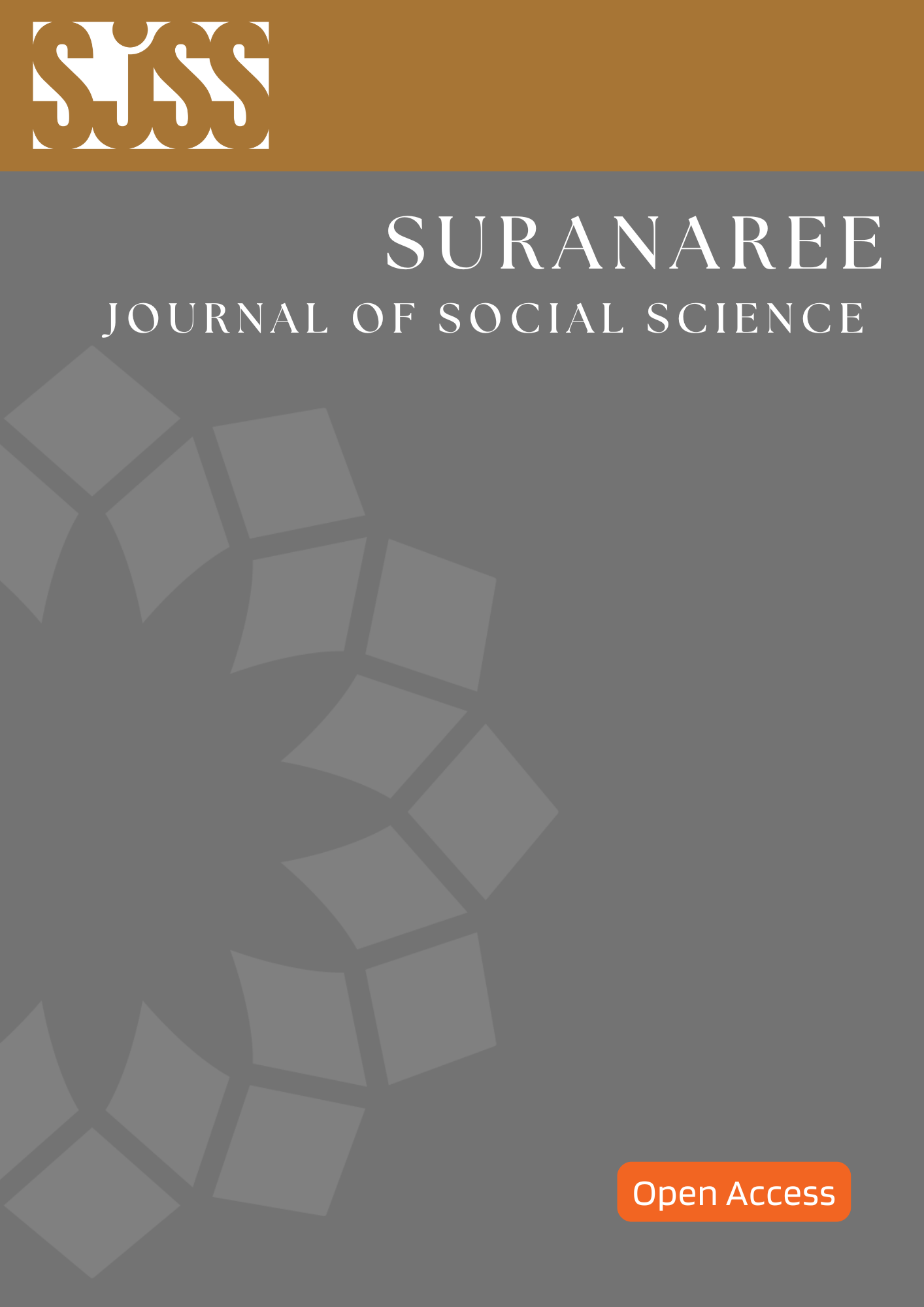Students’ Perspectives towards NSTRU Policy on English Proficiency Development Project Aligned with CEFR
Main Article Content
Abstract
In 2016, the Ministry of Education upgraded a language education policy to develop English language skills for Thai students corresponding with 21st century skills and aligning with the Common European Framework of Reference (CEFR). This study investigates students’perceptions and opinions about the importance and accessibility of the NSTRU Language Education Policy in improving students’English proficiency. The sample consisted of 225 first to third year university students. A questionnaire and interviews were employed for the collection of data. Microsoft Excel was utilized to analyze quantitative data whilst the qualitative data were analyzed using content analysis. The results indicated that students possessed a profound understanding of the NSTRU Language Policy and a clear understanding of the CEFR levels as they corresponded with their English proficiency. The data further suggested that students perceived the application of the policy was at a high level and that the student received a substantial benefit from the training project because the contents were directly aligned with the students’ expectations and needs. The students also perceived CEFR as a tool to measure English proficiency. In regard to the accessibility of the policy implementation, faculties, programs and class advisors, the students perceived these as a means and resources for providing information. Consequently, the students revealed a positive attitude towards the policy implementation. These findings can be used as a database for policy implementation and to design new projects for English language development at the tertiary level nationwide.
Article Details

This work is licensed under a Creative Commons Attribution-NonCommercial-NoDerivatives 4.0 International License.
References
Akakul, T. (2000). Research Methodology in Behavioral Sciences and Social Sciences. (In Thai). Ubon Ratchathani: Ubon Ratchathani Rajabhat University.
Al-Saadi, N. (2015). Importance Of English Language in The Development of Tourism Management. Academic Journal of Accounting and Economics Researches. 4(1): 33-45.
Cambridge Assessment English. (2016). The Cambridge English Scale. [Online]. Available: https://www.cambridgeenglish.org/exams-and-tests/cambridge-english-scale/
Council of Europe. (2001). Common European Framework of Reference for Languages: Learning, Teaching, And Assessment. Cambridge, UK: Cambridge University Press.
Council of European. (2018). Common European Framework of Reference for Languages: Learning, Teaching, Assessment – Companion Volume with New Descriptors. [Online]. Available: https://rm.coe.int/cefr-companion-volume-with-new-descriptors-2018/1680787989
Education First Standard English Test (EF SET). (2018). The CEFR and EF SET. [Online]. Available: https://www.efset.org/english-score/cefr/
Fan, J., & Yan. (2013). A Survey of English Language Testing Practice in China: The Case of Six Examination Boards. Language Testing in Asia. 3(1): 1-16. https://doi.org/10.1186/2229-0443-3-7
Foley, J. A. (2019). Adapting CEFR for English Language Education in ASEAN, Japan and China. The New English Teacher. 13(2): 101-117.
Hwankong, A. (2016). English teaching in the 21st century. Journal of Yanasangvorn Research Institute Mahamakut Buddhist University. 7(2): 303-314.
Khamkhien, A. (2010). Teaching English Speaking and English Speaking Tests In The Thai Context: A Reflection From Thai Perspective. English Language Teaching. 3(1): 184-190. https://doi.org/10.5539/elt.v3n1p184
Kirkpatrick, A. (2010). English As a Lingua Franca in ASEAN: A multilingual model. Hong Kong: Hong Kong University Press. https://doi.org/10.5790/hongkong/9789888028795.001.0001
Kongsanoh, S. (2015). The role of Thai Teachers In 21st Century. (In Thai). [Online]. Available: https://drsumaibinbai.files.wordpress.com/2016/02/e0b89ae0b897e0b89ae0b8b2e0b897e0b882e0b8ade0b887e0b884e0b8a3e0b8b9e0b984e0b897e0b8a2e0b983e0b899e0b8a8e0b895e0b8a7e0b8a3e0b8a3e0b8a9.pdf
Methitham, P., & Chamcharatsri, P. B. (2011). Critiquing ELT in Thailand: A Reflection from History to Practice. Journal of Humanities. 8(2): 57-68.
Ministry of Education. (2003). ASEAN Economic Community. (In Thai). [Online]. Available: https://www.moe.go.th/
Ministry of Education. (2014). Office of the Basic Education Commission: Ministry of Education’S Guidance on Teaching and Learning English Language Reformation. (In Thai). Bangkok: Jamjuree product.
Nishanthi. (2018). The Importance of Learning English in Today World. International Journal of Trend in Scientific Research and Development (IJTSRD). 3(1): 871-874. https://doi.org/10.31142/ijtsrd19061
Phatinuwat, M. (2019). The Importance Of 21st Century Skills and How to Integrate the Skills into The English for Aviation Course. (In Thai). NKRAFA Journal of Humanities and Social Sciences. 7: 34-42.
Sarasuthi, K. (2016). Learning English Through the Cyber. (In Thai). Journal of Yanasangvorn Research Institute Mahamakut Buddhist University. 7(1): 181-185.
Schreier. (2012). Types of Content Analysis: Qualitative Content Analysis for Systematic Reviews. Chicago: The Chicago School of Professional Pemberley. https://doi.org/10.4135/9781529682571
Tuntirojanawong, S. (2017). A Direction of Educational Management in the 21st Century. (In Thai). Veridian E-Journal, Silpakorn University. 10(2): 2843-2854.
Tejarajanya, B. (2017). The Development of The Role of English in Thailand’s Language Education Policies. (In Thai). Journal of Humanities and Social Sciences. 10(3): 121-139.
Turner, K., Leungratanamart, L., Reunreang, T., & Rakkwamsuk., S. (2018). Development of a Pedagogical Model to Promote 21st Century Skills of Nursing Students. (In Thai). Nursing Journal of the Ministry of Public Health. 28(1): 127-138.
Wangphasit, L. (2016). Coaching for Learning English with Happiness. (In Thai). Journal of Education Naresuan University. 18(3): 351-363.
Yutthapongtada, M. (2007). Thailand’s Foreign Language Teaching Policies from The Sukhothai Period to The Present. (In Thai). Journal of Letters. 36(2): 1-13.


